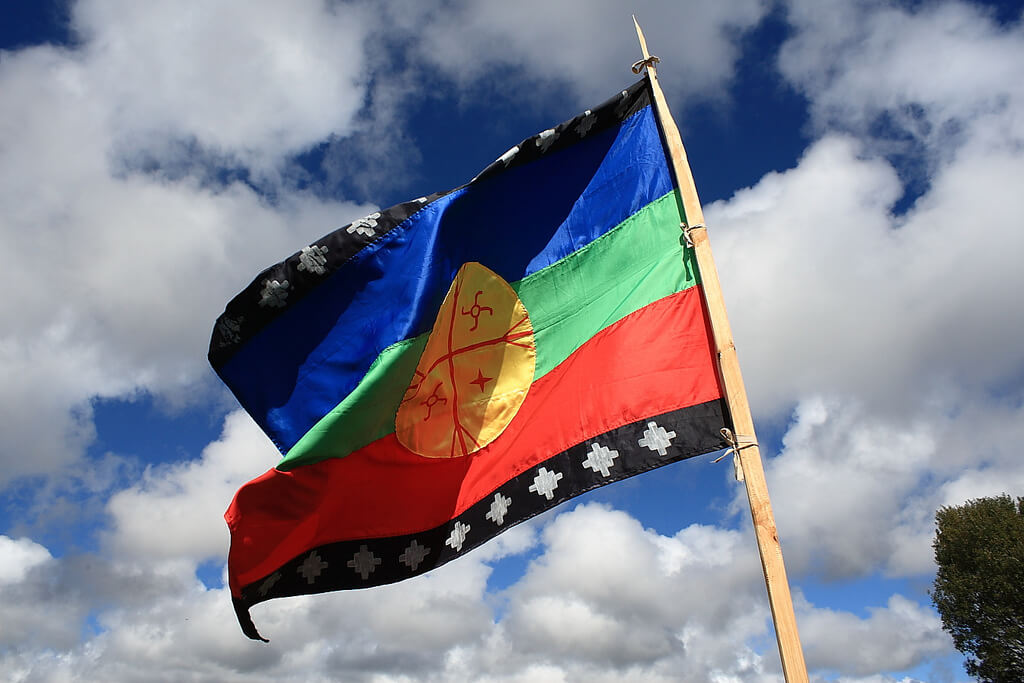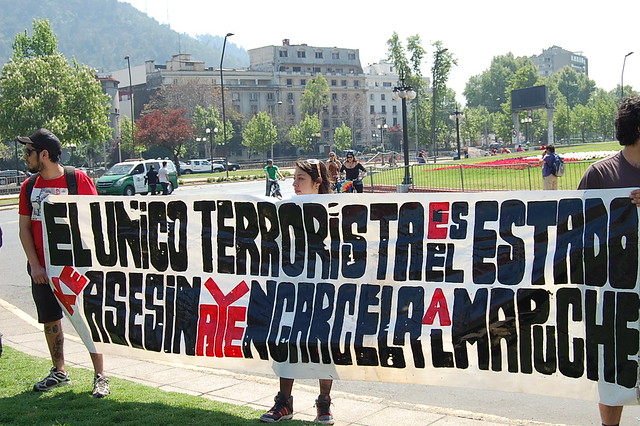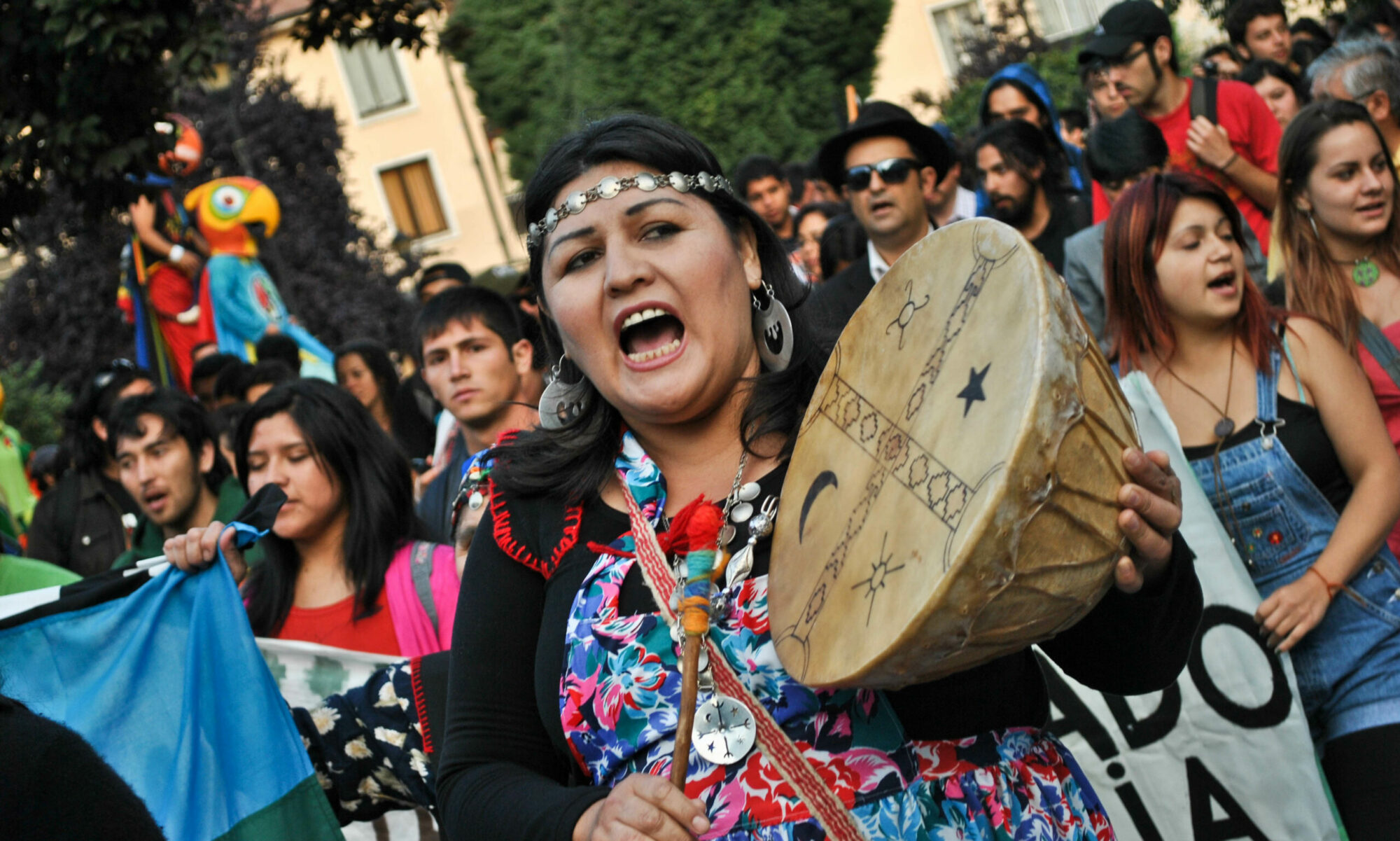The Mapuche are an Indigenous Nation who occupy what is now known as Chile and Argentina. Mapuche means “people of the earth” in Mapudungun, the only living Mapuche language. Wallmapu is the Mapudungun term for the Mapuche homeland, which encompasses the south-central regions of Chile and Argentina.

Hundreds of years of dispossession, neglect, and violence at the hands of the Chilean government have left Mapuche communities impoverished and without equal access to education or health care. During Augusto Pinochet’s dictatorial regime (1973-1990), eighty-four percent of Mapuche lands were allocated to forestry and hydroelectric companies to use for extractive industrial purposes. While some land has been returned, efforts on the part of the Chilean government have been feeble at best; multinational corporations still own Mapuche ancestral lands and continue to exploit and invade their currently-occupied territories in the name of “development.”

In this context, the Mapuche are fighting for their rights to autonomy and territory, most notably by occupying and defending industry-owned stolen lands. Many distinct resistance groups have been formed starting in the 1990s, with the first and most well-known group being Coordinadora Arauco Malleco (CAM). For their efforts, Mapuche people are criminalized and labelled terrorists—several resistance members have been wrongfully imprisoned or convicted, as in the case of Hector Llaitul, the leader of CAM. Despite remonstrations by the United Nations, Amnesty International, and the Inter-American Court of Human Rights, the Chilean government continues to weaponize the state’s Anti-Terrorist Law against land defenders.
